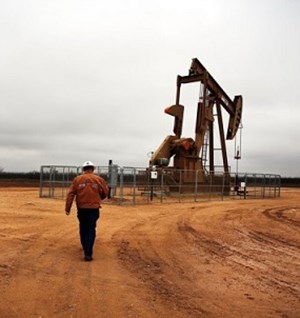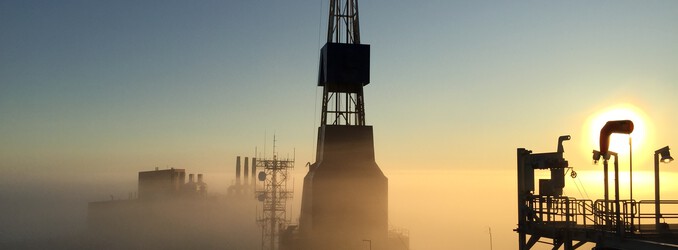(Bloomberg) – Algeria is close to finalizing a deal with ExxonMobil and Chevron to tap the North African nation’s vast gas reserves, including shale, for the first time, a senior official said.

“The technical aspects have more or less been agreed upon, but the commercial alignment is still under negotiation and will soon be finalized,” Samir Bekhti, the chairman of energy regulator Alnaft, said in an interview. Attracting the two U.S. giants “sends a strong signal,” he said.
Algeria is betting big on shale as it looks to shore up state revenue in a country where hydrocarbons account for more than three-quarters of exports. Attempts to diversify the economy have been limited, and rising energy consumption from a 47 million-strong population is making new investment crucial.
“Algeria holds a world class petroleum system with the potential for significant oil and gas resources,” Chevron said in a statement. Given the company’s capabilities and experience, “we are excited by the prospective synergies and relationship we could create in Algeria,” it said. Exxon didn’t respond to a request for comment.
The country’s existing gas infrastructure and location on Europe’s doorstep are major attractions for foreign companies, but Algeria needs to overcome cost concerns arising from drilling deep in the southern desert while offering the prospect of fat returns.
The OPEC member has the world’s third-largest recoverable shale resources, behind China and Argentina, and ahead of the U.S., according to the U.S. Energy Information Administration.
The country has three pipeline connections to Europe, giving it an advantage over more distant suppliers such as Qatar that send liquefied natural gas via ships. Algeria wants to replicate the success American companies have had with shale at home, which turned the US from a net importer to one of the world’s biggest exporters.
“The U.S. did not reach this level of performance overnight. It took them no less than 15 years,” Bekhti said. “For Algeria, it could take less time than that because the infrastructure, facilities and pipeline network are already in place.”
Existing network
For investments in areas close to existing infrastructure, we “will just need to collect preliminary data, carry out initial tests, and connect to the facilities,” Bekhti said. “This is a two- to three-year process.”
Algeria has some of Africa’s largest overall oil and gas reserves, but production had long been held back by mismanagement and lack of investments — an issue authorities sought to tackle with new legislation that was approved in 2019. Then came the Russian invasion of Ukraine, which left Europe struggling to find alternative gas supplies and Algiers poised to fill the gap.
Algeria Is looking for more output to help boost exports
Last year, Algeria’s state-run energy company Sonatrach signed preliminary agreements with Exxon and Chevron to develop hydrocarbon resources in the Ahnet basin, the site of its first trial shale-well back in 2014, and the Berkine basin in the east. In July, Sonatrach agreed with China’s Sinopec Group to explore in another shale-rich area.
“We want to unlock this potential and start working with those who have experience, regardless of whether they are Chinese, American, or European,” Bekhti said.
Exxon and Chevron executives met with senior Algerian officials at a forum in Houston earlier this year, in a sign of growing momentum toward securing commercial terms for new projects.
Actual production
Translating potential into actual production can be difficult. Shale oil and gas output hasn’t been widely successful outside the U.S. for reasons ranging from water availability for drilling and quality of reservoirs to legal and fiscal terms.
Most of Algeria’s shale resources are located far from its northern coastline and major cities, making any investment costly. Previous efforts to develop the sector were shelved in 2016 following protests by residents fearing it would contaminate water supplies.
“We need to master the economic aspects of unconventional energy,” Bekhti said.
Studies conducted by the regulator Alnaft, under the joint supervision of eight oil companies, including Exxon and Eni SpA, have confirmed this potential, Bekhti said.
Separately, Alnaft is aiming for its next bidding round for oil and gas blocks at the end of the first quarter of 2026. The recent first tender in more than a decade awarded giants such as Italy’s Eni, France’s TotalEnergies SE and QatarEnergy.

